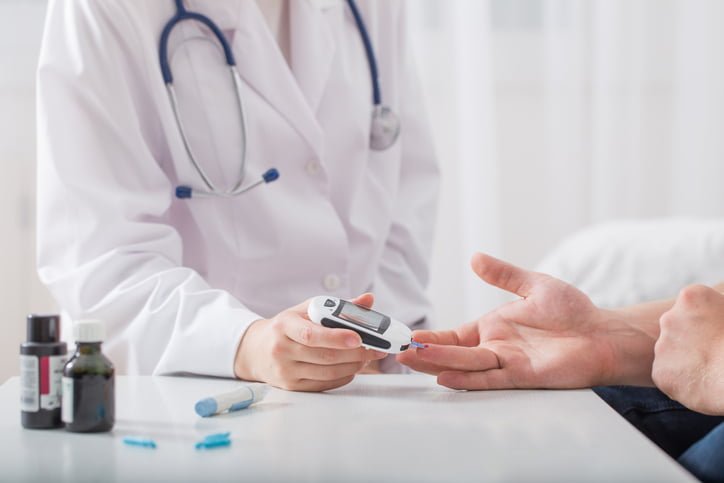According to livescience.com, scientists around the world notice an increase in new cases of diabetes by 2020 and, in particular, find that some COVID-19 patients have no history of diabetes but suddenly have the disease.

This trend has led many groups to study the above phenomenon. Researchers at King’s College London in the UK and Monash University in Australia have set up the CoviDiab Registry database so that doctors can enter information about new diabetic COVID-19 cases.
More than 350 doctors have entered this database. They reported having both type 1 and type 2 diabetes.
Dr. Francesco Rubino at King’s College London said: “Over the past few months, we have seen an increasing number of patients with diabetes during or shortly after COVID-19.
We are starting to think that this link may be correct. It is possible that the SARS-CoV-2 virus may cause problems with the sugar metabolism ”.
Other studies have also found a link between COVID-19 disease and diabetes.
For example, a review of eight studies that included data on more than 3,700 patients hospitalized for COVID-19 found that about 14% of them had developed diabetes. The preliminary study of 47,000 COVID-19 patients in the UK also found that 4.9% developed diabetes symptoms.
Dr. Remi Rabasa-Lhoret, a metabolic disease researcher at the Montreal Clinical Research Institute, said: “We clearly see that there are people who have never had diabetes now have the disease. There is a possibility that COVID-19 could cause this disease ”.
The important question is why and scientists have several explanations.
It is possible that the SARS-CoV-2 virus directly attacks insulin-producing cells in the pancreas.
Or the virus can indirectly damage these cells by infecting other parts of the pancreas or the blood vessels that supply the pancreas with oxygen and nutrients.
Another theory is that the virus infects organs involved in blood sugar regulation such as the intestines and somehow reduces the body’s ability to break down glucose.
In the past, other viruses such as the entero virus (which causes hand, foot and mouth disease) have been linked to diabetes. In addition, a small group of patients infected with SARS-CoV virus that caused SARS in the early 2000s also developed diabetes.

In general, an acute viral infection can cause serious inflammation in the body and in response, the body produces anti-stress hormones like cortisol to reduce inflammation. The anti-stress hormone can cause blood sugar levels to rise, and increases don’t always drop after the infection is gone.
Additionally, patients with COVID-19 are often treated with steroid medications such as dexamethasone – which can cause hyperglycemia. Therefore, it is possible that these steroids also contribute to diabetes in COVID-19 patients.
Steroid-induced diabetes may decrease after a patient stops taking steroid medication, but sometimes the diabetes becomes a chronic illness.
Another factor that makes scientists unclear about the link between COVID-19 and diabetes. That is how many of the patients with COVID-19 are already in the stage of undeveloped diabetes, ie have higher than average blood sugar. Maybe the patient has had a higher than normal blood sugar for many years and they don’t know. Now they have COVID-19 and it makes them truly diabetic.
Scientists also do not know whether patients with diabetes during or after COVID-19 infection must live with diabetes for life.
Some diabetic patients, after being infected with SARS in the 2000s, have returned to normal. The same can be true for patients with COVID-19, ie having only short-term diabetes symptoms. However, this will need more research to confirm.

